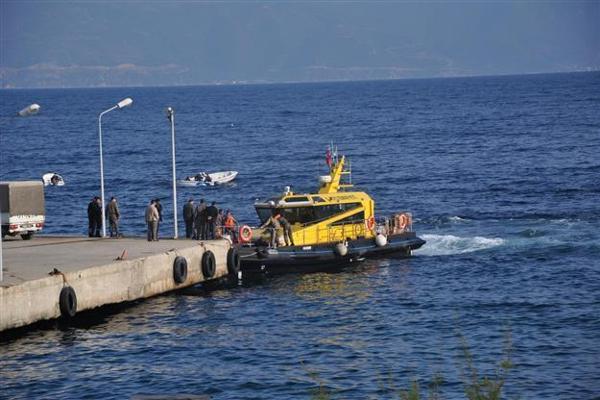Visits of senior PKK leaders to Öcalan unlikely in near future
DENİZ ZEYREK ANKARA – Radikal


DHA Photo
The imprisoned leader of the outlawed Kurdistan Workers’ Party (PKK), Abdullah Öcalan, is set to be visited by lawyers, journalists and a delegation of “wise people,” but it is very unlikely that senior PKK members from Kandil will meet with Öcalan at İmralı Island prison in the near future.A delegation from Turkey’s National Intelligence Organization (MİT) is continuing to meet with Öcalan as part of the ongoing process to find a peaceful solution to the Kurdish issue, and the Justice Ministry is allowing for an increase in the number of relatives’ visits to Öcalan and five other convicts on İmralı Island.
Prime Minister Recep Tayyip Erdoğan had previously said “time will tell” whether it would be possible for a “wise people” delegation to visit Öcalan, adding that such a development was not on the government’s agenda at that time.
The issue was recently discussed by the MİT and then came onto the agenda at the National Security Board meeting, where it was discussed positively. The authorities are currently working on the names who might visit Öcalan. The PKK head has named journalists Cengiz Çandar, Hasan Cemal and Ertuğrul Özkök as being among the names that he wanted as visitors in the past. It is believed that these particular names have a low chance of being included in the visiting delegation, though a final decision will be reached by the end of this year.
The government does not plan to allow any foreign delegation to visit Öcalan, except the European Committee for the Prevention of Torture. The Committee visited Öcalan two years ago and released a report.
It is seen as certain that he will be visited by lawyers. Öcalan was last visited by lawyers from Asrın Legal Bureau on July 27, 2011, but after these lawyers were accused of serious crimes in the Kurdistan Communities Union (KCK) case, this was the last visit of lawyers to Öcalan.
An official in charge of the management of the process said the peace process was currently at a critical stage. “Tomorrow might be too late for these steps. This is why we are discussing them now. We will take these steps if they will benefit the process,” said the official.
